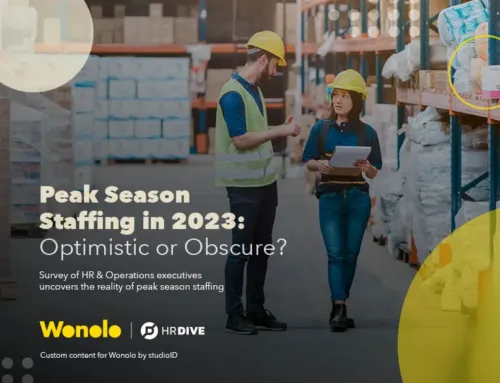Yong Kim
 Last year about this time, I was flying in a private jet with a CEO and a CFO of a fast-growing software company during its IPO roadshow, visiting investors at their swanky offices across the country. Today, I am riding with a truck driver, carrying and delivering products from one gas station convenience store to another.
Last year about this time, I was flying in a private jet with a CEO and a CFO of a fast-growing software company during its IPO roadshow, visiting investors at their swanky offices across the country. Today, I am riding with a truck driver, carrying and delivering products from one gas station convenience store to another.
Over the past twelve months during my transition from an investment banker to a startup founder, I have had many incredible opportunities to experience a diverse array of jobs. For example:
- I pitched to numerous CEOs and CFOs on acquisition targets and financing options. I also begged countless mom-and-pop stores at a shopping mall to try my new App.
- I visited Ivy League campuses to recruit eager candidates who sat on the edge of their seats in their best suits at formal investment banking career sessions. I also handed out hundreds of flyers to community college students who refused to look up from their phones when I tried to tell them about my new startup and then crumpled the fliers that I spent hours photocopying and threw them on the ground.
- I worked more than 20 hours straight working on a leveraged buy-out model. I also got up at 4AM to work at a cold warehouse to restock merchants all day.
During this transition, I learned several valuable lessons:
- There is no such thing as an “easy” job. Jobs that sound relatively simple, for example, restocking empty coolers with products, are not as easy as you would think especially if you want to do them properly.
- There is no such thing as a hierarchy of jobs. There is a socio-economical notion that certain jobs are better than other jobs and regarded as more “respected”, for example, doctors, lawyers, professors, scientists, etc. However, some of the jobs I tried (and people who worked hard on these jobs) made huge impacts on our lives behind the scenes even though they did not have any of these fancy titles.
- There are talented people everywhere. I met some of the most amazing, hard-working and intelligent people at places that I never expected. They may not have the prestigious education background, but they inspired me more than some of these Ivy League graduates could.
These lessons taught me that to do any job really well, you need a little bit of smarts, but lots of perseverance, will power and integrity. Going the extra mile to do the job right, especially when no one is looking, requires true dedication and an incredible work ethic. It is not an IQ of 150, an Ivy League resume or smooth-talking interview skills that will tell you who will get the job done well.
Based on these three lessons, I started wondering, “why is it that when companies recruit talent, they spend so much time, effort and money reviewing resumes and interviews?” In my personal experience, some of the best candidates on paper and during interviews turned out to be the worst performers. Or, vice versa.
This practice of posting the job, waiting for resumes, then weeks- and months-long process of reviewing those resumes, scheduling and coordinating interviews, and then bringing multiple, busy people in to conduct those interviews, is still the de facto method for companies to find talent after many decades. Yet, there is no guarantee that this arduous process will lead to finding the best person for the job.
To date, it has been assumed that this is the only way to do it. This does not make sense to me, especially when we are living in the world where there is so much emphasis on testing and learning quickly. In particular, startups as well as large corporations have increasingly been embracing “Lean Startup” and “Agile Development” methods to develop and launch their products quicker and better. Basically, what it’s preaching is that the traditional, waterfall method of spending months and years perfecting the “theory” increases the probability of failure. Instead, go out, test, iterate, launch in short cycles even though it may not be the most perfect product. One of the key benefits is that companies can reduce cost as well as risks of failures by constantly incorporating lessons learned from these experiments.
Well, here is a suggestion to all the recruiters, managers and decision makers out there. Forget about resumes. Forget about interviews. Why don’t you just try your candidates first? What I am proposing, let’s call it “Lean Recruiting”, follows the same logic as Lean Startup.
Instead of spending weeks and months reviewing resumes and interviewing candidates, bring them in and test them in real settings as long as candidates meet minimum requirements. Give them the temporary job that is as real as possible and see how your candidates actually do. Specifically, I would propose the following:
- Post a job
- Candidates apply
- Quick screen call with those that meet minimum requirements
- Bring in the first batch of those who passed through the screen
- Have them do real jobs for a short period of time
- Review the test result
- Bring in the second batch
- Repeat until you find the right candidate(s)
- Continue testing candidates for future job openings
Obviously, there are a lot of logistics that need to be sorted out, for example, at which point in the recruiting cycle do we bring them in, how long do we test them (a day or a week), will they become our employees during the test, how do we pay them, etc. However, some of these can be solved quite easily as there are a lot of third party companies that can get rid of some of these frictions.
Some of the companies I have recently been working with have actually implemented a similar method to this in their recruiting process and have seen tremendous success. I personally hope that companies will have an opportunity to meet and work with candidates that they would have never considered. At the same time, this will be a great way for candidates to really assess whether this is the right job for them.
*Full disclosure – I am currently working on a startup that tests this model, called Wonolo.
![]()


![[Report] Beyond the Gig: Exploring Reliable Work Options for the Modern Workforce](https://info.wonolo.com/wp-content/uploads/2023/10/Worker-Preferences-Report-Header-Image-500x383.png)



